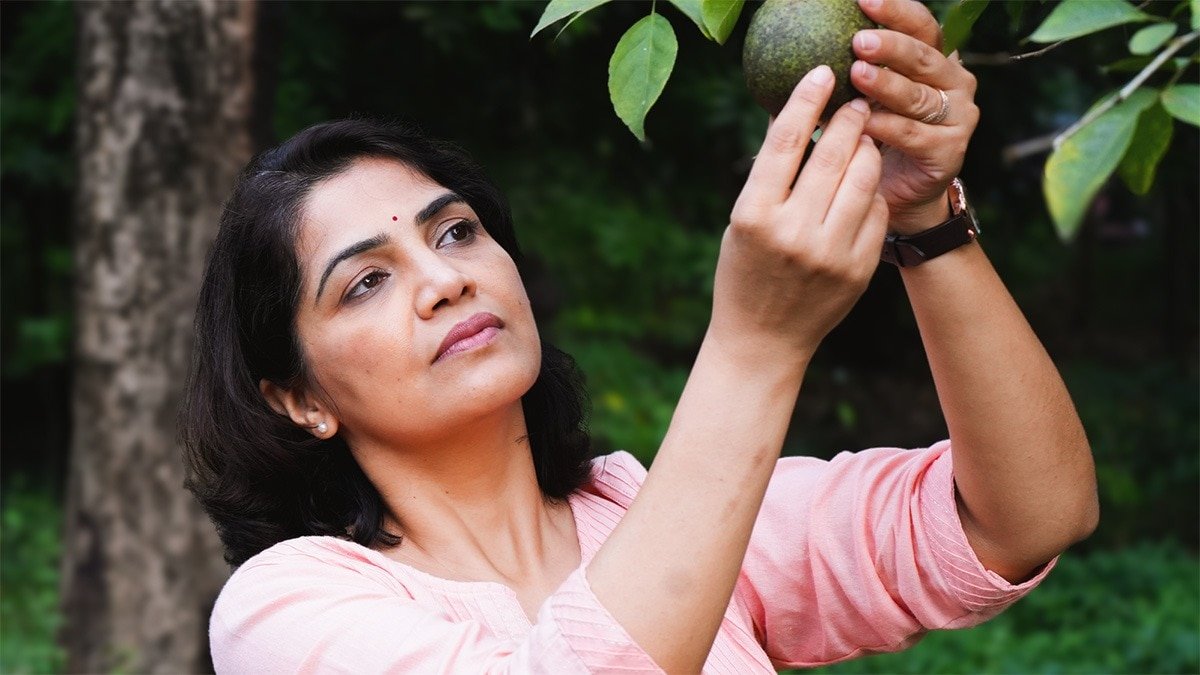“Have you ever felt sluggish in the winter, energetic in the spring, and irritable in the summer? These seasonal changes aren’t just a figment of your imagination; Ayurveda reveals a deep connection between the natural world and our innermost health,” says Dr Karthik Krishnan of Arya Vaidya Pharmacy, a Delhi-based Ayurvedic practice.
Cool Customer
With summer on the way, temperatures are soaring. “This season is associated with Pitta dosha. Our diet should shift towards cool, light foods with sweet, bitter and astringent tastes. It is important to stay hydrated with cool (but not too cold) liquids. Favor seasonal fruits and salads, which refresh the body,” says Dr Krishnan.
He also suggests avoiding strenuous exercise, wearing light, breathable fabrics and protecting yourself from direct sunlight. “Relaxing with a cool bath and prioritizing rest during the hottest parts of the day can help you maintain balance. Using cooling herbs such as neem and aloe vera can help calm the body,” says Dr Krishnan.
In the torrential rain
While rain provides a much-needed respite from the summer sun, it also increases humidity. “The digestive fire may weaken and Vata dosha may increase. This season calls for warm, light and easily digestible foods with a balance of sour and salty tastes. Avoid cold, damp environments and wear dry, comfortable clothing. Get moderate exercise to improve blood circulation, taking care to avoid overstraining,” says Dr Krishnan. To strengthen your digestive health, you should also focus on well-cooked meals, ancient grains and digestive-boosting herbs such as ginger and turmeric.
A welcome change
Autumn brings hot and humid weather, which can aggravate pitta dosha. “Your diet during this time should focus on cool, light foods with mild sweet and bitter flavours. Incorporating grains such as barley and millet, and cooling fruits, will help keep pitta in balance. Participating in calming activities, avoiding direct sunlight, and practising meditation are essential to maintain harmony,” says Dr Krishnan. He also suggests the use of cooling herbs such as mint.
Warm and charming
According to Ayurveda, winter’s cold, dry weather intensifies the digestive fire. “This season calls for warm, comforting foods rich in sweet, sour and salty flavours. Nourishing staples like nutritious grains, dairy products and healthy fats are essential to maintain energy and warmth. Regular massages with warm oils (abhyanga) not only nourish the skin but also increase blood circulation and help combat the cold,” says Dr Krishnan.
Exposure to sunlight and wearing layers can help protect you from the cold, while strength-building exercises can keep you active and improve your recovery. “Herbal oils and seasonal herbs such as amla along with hot drinks can help defence against dryness and fatigue,” he adds.
Spring feeling
“With the arrival of spring comes mild, damp weather that can aggravate kapha dosha. This is the perfect time to incorporate lighter, easier-to-digest foods,” says Dr Krishnan. He recommends incorporating more bitter and astringent flavours, such as green vegetables and lentils. “Regular exercise will invigorate the body, and methods such as dry massage (udvartana) will stimulate circulation and energy. Detoxification will be key; consider incorporating cleansing techniques such as vamana (vomiting) and nasya (nasal irrigation) to remove toxins. Spring herbs such as turmeric and triphala support this process, promoting clarity and vitality,” he says.
While following seasonal self-care steps is important, mind-body practices like yoga and meditation can help sustain us year-round. “They increase our resilience to stress, a universal challenge no matter the season,” says Dr. Krishnan. Daily habits like tongue scraping add another layer of self-care that supports digestive and oral health.
Subscribe to India Today Magazine
tuning

